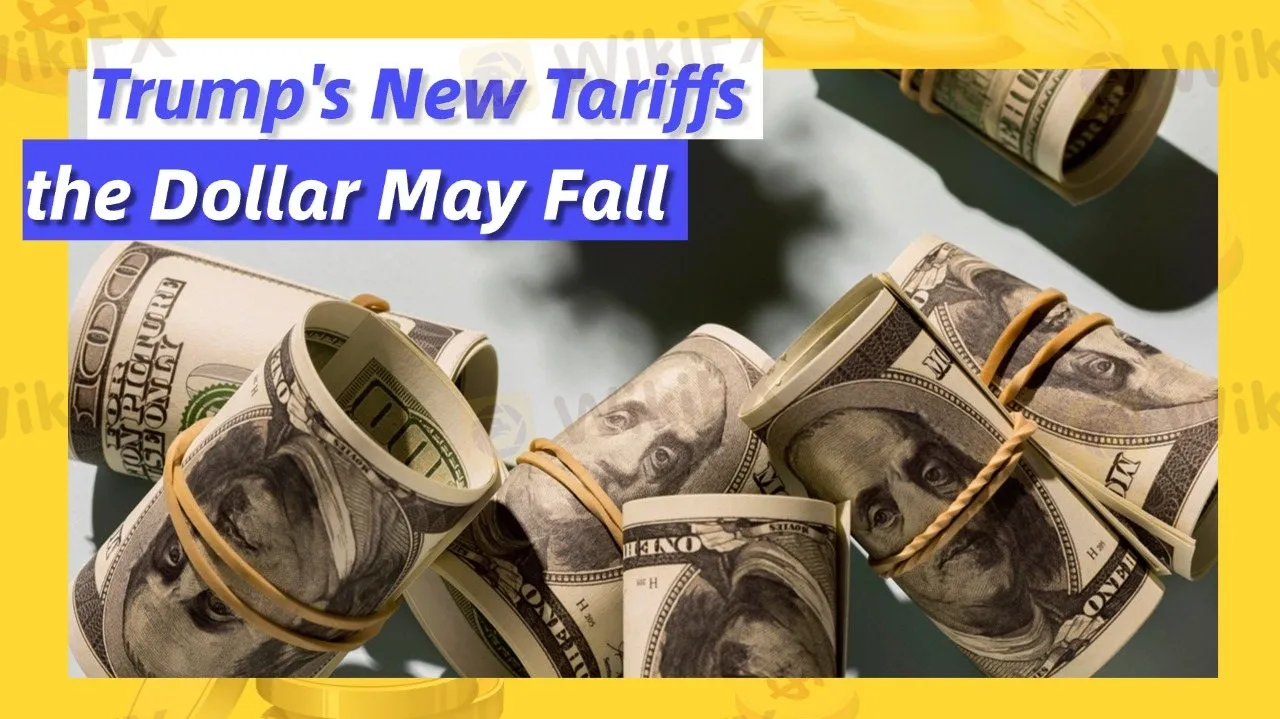简体中文
繁體中文
English
Pусский
日本語
ภาษาไทย
Tiếng Việt
Bahasa Indonesia
Español
हिन्दी
Filippiiniläinen
Français
Deutsch
Português
Türkçe
한국어
العربية
Trump's new tariffs, the dollar may fall
Abstract:As Trump nears taking office, the key question is whether these new tariffs will be implemented, and whether the dollar can continue to rise.

During his campaign, Trump proposed a 10-20% tariff on all imported goods, with a 60% tariff specifically on Chinese products.
Recent reports indicate that Trumps team is working on a new tariff plan, aiming to impose import duties on certain goods from around the world. This plan is different from the “universal tariffs” that Trump suggested during his campaign, and the specific goods or industries that will be affected have not yet been disclosed.
The tariff policy Trump proposed during the election primarily aimed to protect U.S. domestic manufacturing, reducing competition from low-priced imports. This policy was closely tied to Trumps campaign promises and helped garner support from voters. Additionally, the revenue generated from tariffs could offset potential tax losses from other tax cuts.

However, Trump has denied reducing the intensity of the new tariffs, leading to a drop in the dollar during volatile trading, with the dollar index falling by 0.7% to 108.23.
It remains unclear whether Trump will change his mind, and the tariff policy is still being adjusted, with no final decisions made yet.
One reason for considering adjustments to the “universal tariff” is that such a policy could provoke a strong reaction from U.S. consumers and businesses. If prices on everyday items like food and consumer electronics rise, it could lead to public dissatisfaction.
Trump's team is clearly aware that widespread tariffs could trigger retaliation from international trade partners, further intensifying global supply chain uncertainty and increasing costs for U.S. businesses and consumers.

Disclaimer:
The views in this article only represent the author's personal views, and do not constitute investment advice on this platform. This platform does not guarantee the accuracy, completeness and timeliness of the information in the article, and will not be liable for any loss caused by the use of or reliance on the information in the article.
Read more

Want to Succeed in Forex? Start with the Right Trading System
If you want to trade currencies and make money in the long run, you need a good forex trading system. Many new traders enter the market without a clear plan. Some rely on luck or tips from others. But trading without a system often leads to losses.

Risk Involved with Cabana Capital – Every Trader Should Know
Cabana Capital has changed its name and logo, basically everything about its identity. This seems a bit suspicious, and it's something you should definitely be concerned about. In this article, you’ll learn about the red flags that every trader needs to watch out for.

CME International Records a Massive Jump in Forex Volumes
CME International recorded a record surge in its foreign exchange trading volumes during the second quarter. Check out its performance across products and markets.

Scam Brokers Exposed! FCA Warns Traders to Stay Safe
If you are into forex trading, you need to protect your money from investment scams. Many scam brokers are active in the market now. The FCA, a reputed financial regulator, has issued a list of unlicensed brokers you need to stay away from.
WikiFX Broker
Latest News
US Government Interest Grows in Victory Metals’ Rare Earths Supply
How Are Trade Policies Affecting the Aluminum Market?
RM71,000 Lost in a Share Scheme That Never Existed
Scammed by a Click: He Lost RM300,000 in a Month
Manual vs. Automated Forex Trading: Which One Should You Choose?
Revealing Factors That Help Determine the Gold Price in India
Why Regulatory Compliance Is the Secret Ingredient to Trustworthy Forex Brokers
Pentagon to become largest shareholder in rare earth miner MP Materials; shares surge 40%
Delta shares jump 12% after airline reinstates 2025 profit outlook as CEO says bookings stabilized
Delta shares jump 13% after airline reinstates 2025 profit outlook as CEO says bookings stabilized
Currency Calculator


